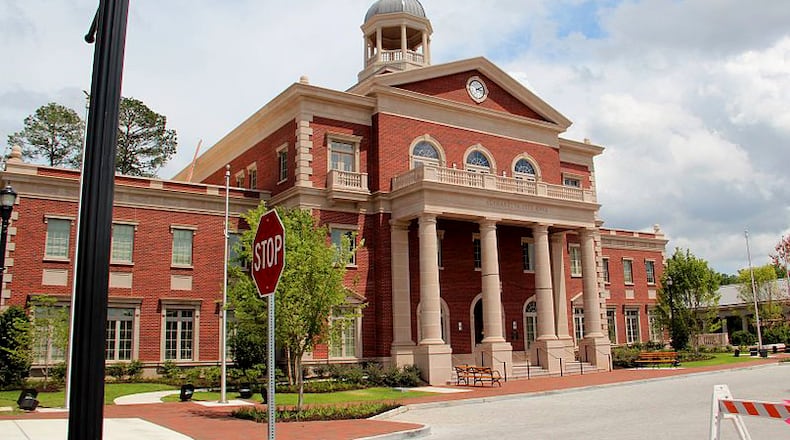Alpharetta wants in-depth sales tax information from the Georgia Department of Revenue to help officials decide whether to add a sales tax they say would guarantee more revenue stays in the city.
City Council approved a resolution Tuesday which formally asks the Department of Revenue for sales tax reports from Alpharetta businesses from July 1, 2019, to June 30, 2020. Councilman Ben Burnett said the requested data is more than the state typically provides.
The new municipal option sales tax would raise local sales taxes a quarter of a percent to 8% and could generate more revenue than the local option sales tax distribution received from Fulton County, Burnett said.
Alpharetta officials said they want to keep more of the sales tax revenue generated in the city. Detailed sales tax reports from the state would help the city determine how much revenue goes to other Fulton cities.
City Council wants Finance Director Tom Harris to analyze the data before Alpharetta renews negotiations with Fulton County on sales tax revenue next year, Burnett said.
Alpharetta and other Fulton cities receive distributions from countywide sales taxes in proportion to population size. Burnett and fellow Council members believe Alpharetta has not received its fair share because its population is based on a nighttime number of residents, about 67,000. Burnett said the daytime population should be considered instead. Before the nationwide health crisis, the city reported that workday commuters into Alpharetta doubled the city’s population.
“Roswell gets more sales tax revenue from Alpharetta businesses than Alpharetta,” Assistant City Administrator James Drinkard said.
And although a new kind of normal is expected when the pandemic ends, Burnett said Alpharetta will continue to be a draw for corporate business and an increase in sales taxes would take a tax burden off residents. Sales tax revenue would come in from local hotel guests and shoppers visiting such places as Alpharetta City Center, Avalon and North Point Mall, he added.
“And that’s important because Alpharetta is over 60 percent commercial,” he said. “If a (municipal sales tax) generated $10 million, the city of Alpharetta would lower its property tax by $10 million. “We are just shifting where that money is generated from.”
Burnett believes the city can make a case for the municipal option sales tax to the Georgia General Assembly, which must approve it, but first city leaders need the sales tax information on local businesses.
“I don’t expect (the state revenue department) to be cooperative at all,” he said. “They’ve never been cooperative with municipalities when it comes to sharing information.”
About the Author
Keep Reading
The Latest
Featured




